By Jennifer Jett
While our mountains are believed to create a protective barrier around our great state, the winds of change are no more a stranger to West Virginia than anywhere else. Industries, work force needs and education—everything is evolving at a rapid pace to meet demands of the global market. The entire health care system, from design to delivery of services and even the discovery of new treatments, seems to be in perpetual motion. New technology to improve communications, manufacturing and education are introduced every day.
The eight candidates running for office in the U.S. Senate and Congress with aspirations of representing the Mountain State in Washington, D.C. each have their own perspective on these changes. In their own way, each sees the challenges of these changes. More importantly, they see the opportunities arising for West Virginia.
With the November election right around the corner, West Virginia Executive wanted to provide our readers with firsthand perspective from these eight candidates on what they see as the challenges facing the Mountain State, as well as the strengths and the plan of attack each has for representing West Virginia while contributing to much-needed changes on Capitol Hill.
The winners of these four races will be the faces of West Virginia on the national stage, and it’s important for voters to understand not only where the candidates stand on important issues but how they see West Virginia’s future and what they will do to ensure the Mountain State prospers.
Be sure to get out and vote this November and play a part in the important selection of our state’s leaders.
U.S. Senate Race
Shelley Moore Capito (R)
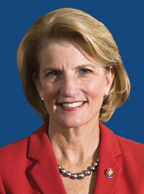 Congresswoman Shelley Moore Capito was elected to the House in 2000. Prior to her role within Congress, she served two terms in the West Virginia House of Delegates. Capito is a senior member of the House Transportation and Infrastructure Committee and a member of the House Financial Services Committee. She has consistently fought the EPA’s war on coal, and she supports a comprehensive energy plan that includes West Virginia energy resources.
Congresswoman Shelley Moore Capito was elected to the House in 2000. Prior to her role within Congress, she served two terms in the West Virginia House of Delegates. Capito is a senior member of the House Transportation and Infrastructure Committee and a member of the House Financial Services Committee. She has consistently fought the EPA’s war on coal, and she supports a comprehensive energy plan that includes West Virginia energy resources.
Ask the Candidate
Tell us about your background in owning or running a business and how that experience will help you in the role of U.S. senator.
I have been in probably a thousand West Virginia businesses over the last 18 years of my service, talking about challenges and how to get job growth and job opportunities, so I have a lot of experience looking at health care costs, taxes and business certainty with regulation. I’ve done a lot of listening, which I think is critical to hearing about what the business concerns are to grow jobs in West Virginia. And so, through my service in Congress and in the House, I think I’ve had a great opportunity to see firsthand not only by visiting but also by legislating and trying to help small and large businesses expand.
What do you see as West Virginia’s biggest challenges?
West Virginia has challenges in the energy sector. That’s probably our largest challenge, and that comes from Washington—from the president, specifically. It’s tying one hand behind our back in the state. It’s going to have a big impact on our manufacturing sector, our power bills and employment. It also has a big impact on individual counties that are trying to keep their schools open and their counties running with the tax base evaporating in certain parts of the state. Even the areas that aren’t directly affected are feeling it. There is a lot of pessimism and uncertainty about our future, and with that also comes the challenge of keeping our young people home so we can have that next generation to move the state along.
What do you see as the nation’s biggest challenges?
I think the biggest thing facing the country is the economic recession we can’t get out of. We have stagnant job numbers; we have people who have dropped out of the work force and also dropped out of looking for work. We have uncertainty about our health care costs and what this health care bill is going to mean to individuals and businesses both from costs and also delivery of service and quality of health care. We have challenges in the country about confidence in Washington being able to get their job done and frustration with Congress and with the president in not being able to make the big decisions. We’ve got a lot of big issues we need to tackle—fiscal issues, in particular—that we just can’t seem to get consensus on, and I think that hurts this recovery.
What are West Virginia’s most important assets?
The people of West Virginia are the best thing, no doubt: the compassion, the commitment, the strength, the integrity, the warmth of West Virginians. Being a West Virginian myself, when I come home every weekend, I just breathe a big sigh of relief because I’m with people who care about one another and who want to work hard, so I think that is our biggest asset. I think our inward desire to be better and get better and want better things for our children is something that is great about West Virginia, too.
Which of your personal characteristics will help you as a senator?
I have an ability to work across the aisle to reach a consensus, develop relationships in a network and forge a compromise. I think I’m known as a good listener before I’m a talker—that I’m somebody who wants to hear and learn before I make a decision or before I decide to make a public statement. I’m a fighter. I have a strong backbone and a great will to move forward; I’m not easily turned aside. I also have a passion for my fellow West Virginians. I was raised with a solid set of West Virginia values, and I think treating people with stability, civility and how you would want to be treated is how I’ve conducted myself.
What will be your No. 1 priority as a U.S. senator?
We’ve got to get West Virginians back to work. That means a comprehensive energy plan that includes all of the above. That means a health care bill that delivers affordable and accessible health care to West Virginians. The major thing is jobs. It’s getting folks to work. Jobs are my No. 1 priority.
Natalie Tennant (D)
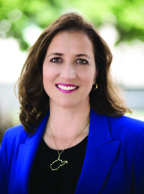 Secretary of State Natalie Tennant is serving her second term in office. Prior to her election to office, she spent 12 years in the TV news industry, and she started a small business with her husband. As secretary of state, Tennant cut her own budget, giving $3 million back to the taxpayers of West Virginia, cut fees for small businesses and made it easier to file paperwork. Tennant’s No. 1 priority is creating good-paying jobs for West Virginians.
Secretary of State Natalie Tennant is serving her second term in office. Prior to her election to office, she spent 12 years in the TV news industry, and she started a small business with her husband. As secretary of state, Tennant cut her own budget, giving $3 million back to the taxpayers of West Virginia, cut fees for small businesses and made it easier to file paperwork. Tennant’s No. 1 priority is creating good-paying jobs for West Virginians.
Ask the Candidate
Tell us about your background in owning or running a business and how that experience will help you in the role of U.S. senator.
I am a small business owner, and a lot of people don’t realize that because many West Virginians remember me from my days from being on TV and reporting the news. My husband, Erik, and I opened a small business called Wells Media Group. I know firsthand that the perk of owning your own business is you get to work nights and weekends, and that’s why it was important for me as secretary of state to make helping businesses, especially small businesses, a top priority. I cut fees, and I made it easier for businesses to file their paperwork online so they could save time and money they could then spend creating jobs and growing their business. Our office also created the first-ever online chat for businesses. They can instant message someone in our business and licensing division and get information back immediately. That’s why we stay open late and stay open on some holidays—because I feel that when businesses are working, we need to be working for them also. That’s the experience I have, and I will take that same entrepreneurial attitude to the U.S. Senate.
What do you see as West Virginia’s biggest challenges?
My No. 1 priority as a U.S. senator is creating good-paying jobs. For West Virginia, good-paying jobs start with energy, and energy for this state starts with coal. Manufacturing, technology and research are part of those good-paying jobs. We’re doing 3-D printing, and we have the potential to fuel the next wave of micro-manufacturing and create good-paying jobs through that. We can’t do anything, though, unless we invest in our greatest resource: our people. We have to make sure West Virginians have skills to fill these jobs.
What do you see as the nation’s biggest challenges?
You look at the need for good-paying jobs, and you know, when I talk about the drug crisis, it’s not just in West Virginia and it’s not just in one particular area. We know we have prescription drug abuse; we have meth labs and we have heroine, but it’s the same situation you see across the country. Our communities can’t be strong if they’re being ripped apart with the drug crisis, and that’s why I think it’s so important to have prescription monitoring programs. States have the programs; we need to make sure all the states are linked together.
What are West Virginia’s most important assets?
Well, obviously our ability to be energy independent because God has blessed us with many resources from our coal and energy. Our mountains, our scenery and our rivers attract tourists from all over the world. That’s obviously a plus for us, but you know, without a doubt, our greatest resource and our greatest blessing is our people because it’s our hard-working West Virginians who are innovative and who help to create these advanced coal technologies that are going to serve the rest of the country in making us energy independent. We are leading the way at the Robert C. Byrd Institute with 3-D printing and helping companies all around the country with prototypes. And here in West Virginia, what do people say about us? We’re the most hospitable state. The way I look at it is we take care of anybody who comes into West Virginia, and we also take care of each other. Yes, we have differences, but we will stand up with each other and take care of each other. When I think of West Virginia, I think of my family. All of West Virginia is my family, and I will take care of West Virginia just as we take care of each other.
Which of your personal characteristics will help you as a senator?
I grew up on a farm where we learned how to do more with less, and I took that value to the secretary of state’s office where I do more with less every day. For me, that farm in Marion County is still my conscience and my compass. Any time I have to make tough decisions, I ask myself, can I go back to the farm and tell my dad and my brothers why I did what I did? And if I can’t, it’s probably not the right thing to do. I took it from the farm to Charleston when three Democratic-elected officials from my own party tried to steal an election. I led the investigation that put them behind bars because I put West Virginia first, before party, before power and before position.
What will be your No. 1 priority as a U.S. senator?
My No. 1 priority is creating good-paying jobs. I’m pro-coal, and I’ll stand up to anyone to protect our coal jobs. I’m also pro-coal miner; while I’m fighting to keep our miners working, I’m fighting just as hard to keep them safe and protect the pensions and benefits they’ve earned over a lifetime. My first act in the U.S. Senate will be to sign on to the Robert C. Byrd Mine Safety Protection Act.
Congressional Race – 1st District
David McKinley (R)
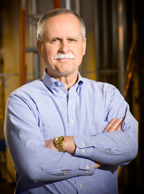 Congressman David McKinley began representing West Virginia’s 1st Congressional District in 2011. Previously, he served as a West Virginia delegate for the state’s 3rd Delegate District. He was elected chairman of the West Virginia Republican Party Executive Committee in 1990. He has pursued market-driven reforms to help government operate more efficiently. He recognizes the importance of the coal industry and that the attacks on coal from Washington must be stopped.
Congressman David McKinley began representing West Virginia’s 1st Congressional District in 2011. Previously, he served as a West Virginia delegate for the state’s 3rd Delegate District. He was elected chairman of the West Virginia Republican Party Executive Committee in 1990. He has pursued market-driven reforms to help government operate more efficiently. He recognizes the importance of the coal industry and that the attacks on coal from Washington must be stopped.
Ask the Candidate
Tell us about your background in owning or running a business and how that experience will help you in the role of congressman.
That’s one thing that comes up when you’re a member of Congress: you’re not allowed to own your own business. We had developed one of the largest architectural engineering firms in the State of West Virginia, but we couldn’t keep it. I didn’t want to sell the company because I knew what was going to happen—the buyer would go through and pick out some of our best staff members and let everyone else go. So in my ownership transition plan, we set up an ESOP, an employee stock ownership plan. The ESOP retained all of the jobs, and none were lost. The best thing being a business owner teaches you is the responsibility of holding in your hands the future of your employees. They’re counting on you. To me, it was also important that the employees had confidence that we were not having uncertainties. We made it very clear for our employees that as long as they gave us a good 40 hour work week, they had a job. I also understand the debt structure in a business and what it’s like to take a risk. A lot of people aren’t willing to take a risk, and we know that’s a little of the problem we have in America today. Too many people are in decision making positions who have never taken a risk. I’ve been more than willing to take a risk because I know that’s how America is going to grow again. You have to have an entrepreneurial spirit that’s alive and well.
What do you see as West Virginia’s biggest challenges?
West Virginia is just a microcosm of the challenge facing the whole nation, and that’s the economy. We can ill afford to lose our coal industry, and we have further threats to our natural gas. Almost every day in Washington, I explain to other members the impact of this threat to West Virginia’s coal industry because when you attack a coal mine, it’s not just a coal mine that gets hurt. You’re shutting down a town. Another challenge is the structure of health care. We’re already seeing premiums go up, which means companies are facing higher premiums. Families are under the gun; they were promised to keep their health care and can’t. There are some real issues to our economy and how we get this thing back again.
What are West Virginia’s most important assets?
West Virginia has some positives, and I’m proud of those. These were begun by my predecessor down in Fairmont with the high-tech corridor. The West Virginia High-Tech Foundation is located there. In Morgantown, there’s a remarkable opportunity for West Virginia to diversify our economy. We have thousands of people working with scientists and physicists at the National Energy Technology Lab. The research they are doing in clean coal technology, fracing and carbon capture; software development
for defense work and what the FBI is doing—we have a possibility of having a very diverse and robust economy as long as we can keep Washington’s hands off it and let it grow on its own.
Which of your personal characteristics will help you as a congressman?
Probably one of my greatest strengths I have here in Washington is a supportive wife who understands and works every day in critical care. Mary is my best and strongest supporter, and she and I talk throughout the day when we’re debating or discussing health care matters. I want to be able to ask the right questions when they come into a committee or debate. Another strength is our outstanding staff. People have to understand that when you come to Washington, you don’t have years to develop like a company. I had 30-some years to fine-tune an organization. When you’re sworn in, though, you have to have your staff on the ground because the demands that are being asked of you begin that day and are relentless. A personal strength would be to be the ability to identify what we need and making sure our staff is equipped to be able to meet people’s needs. Another strength could be that I’m willing to travel. We put about 45,000 miles on our car because I understand fully that in my job, I’m representing a rural state, and I want to stand up for rural America every chance I get to make sure the people in Chicago, in St. Louis, in Cleveland, in New York—they understand their issues are not our issues. We have a whole host of other problems we face in smaller towns, so we take it upon ourselves to make sure we’re outspoken and standing up for small towns. Small towns like Barrackville, Vienna and Follansbee—they have needs but don’t have that population mass to be able to take care of it.
What will be your No. 1 priority as a congressman?
I think it’s a continuation of what we’ve been doing: trying to find ways to push back against the EPA to make sure America understands what’s taking place. My No. 1 priority will be to keep doing the exact same thing—standing up for rural America, our coal industry, our senior citizens and our veterans.
Glen Gainer (D)
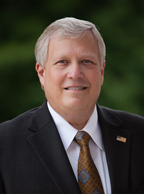 Glen Gainer was elected West Virginia’s 19th state auditor in 1992 and has been reelected five times. As state auditor, Gainer serves as the state’s official bookkeeper, securities commissioner, chief inspector and supervisor over public offices. Gainer is the chair of the board of directors of the National White Collar Crime Center. His direct deposit payroll system and other modernization efforts have saved taxpayers hundreds of millions of dollars while increasing accountability and transparency.
Glen Gainer was elected West Virginia’s 19th state auditor in 1992 and has been reelected five times. As state auditor, Gainer serves as the state’s official bookkeeper, securities commissioner, chief inspector and supervisor over public offices. Gainer is the chair of the board of directors of the National White Collar Crime Center. His direct deposit payroll system and other modernization efforts have saved taxpayers hundreds of millions of dollars while increasing accountability and transparency.
Ask the Candidate
Tell us about your background in owning or running a business and how that experience will help you in the role of congressman.
I have been the state auditor in West Virginia for almost 22 years, and in that position, I oversee various government duties and responsibilities. I graduated from University of Charleston in 1982, and when I was in college, I worked for Smith Tile and Floor Covering in Charleston. Sweeping warehouse floors and loading trucks and working my way through college, in many ways, gave me a good appreciation of small businesses and the struggles they have in doing business and competing in a global environment. I also spent time during college working in the chemical industry. I got to see both a small business and a multi-national corporation. After college, I spent time in restaurant management with Wendy’s International and with the insurance group at John Deere. I worked for a time at the Department of Energy and the state treasurer’s office, and for the last 22 years, I’ve been the state auditor.
What do you see as West Virginia’s biggest challenges?
I think the first thing is where we are with coal and the new EPA regulations, as well as the challenges we have in our ability to continue to be an energy supplier to this country and using coal to do that. Without question, coal affects every aspect of our economy in this state, and we really need to continue to work with and try to ensure that those standards can be mediated to the degree where we can allow West Virginia to continue to produce the energy this country needs.
What do you see as the nation’s biggest challenges?
Rebuilding the middle class and rebuilding the manufacturing base in this country, and ensuring they can compete on an equal footing around the world. In many ways, we have seen this nation move from a nation of manufacturing to a service-based economy. That transition hasn’t served us very well. We have to begin working with the businesses in this country to bring manufacturing back to America. Manufacturing is what made America great and created the middle class in this country. We have to make manufacturing a priority again, and that means putting America first, ending the partisanship and the gridlock we have in Congress so we can put American values and American priorities first.
What are West Virginia’s most important assets?
When we look at our state, West Virginia has so many abundant resources to offer not only America but the world. Our people are our No. 1 resource. This is a very resource-rich state from its people right on down to the resources God blessed us with. We have a great work ethic. We have a work force that can be trained. We just need to do better: to ensure that as we extract the resources from this state, we do it in a sound way, a safe way and a way that will maximize a return that will make folks want to invest in those industries here in the State of West Virginia.
Which of your personal characteristics will help you as a congressman?
I’ve spent 22 years working in government, and I’ve always been able to work with Democrats and Republicans alike. I don’t look at someone’s party registration when I’m trying to work out a solution in government. Look at some of the solutions I’ve been able to provide here in West Virginia, and I did that working with both Democrat and Republican administrations. When I became state auditor, one of the biggest challenges I faced was improving the way we pay state vendors and making sure state vendors are paid in a timely fashion. One of the ways we were able to do that was to create one of the largest purchasing card programs in the world, a best practice we learned from the public sector. West Virginia was one of the first six states in the country to adopt the use of purchasing cards as a way of paying businesses. I worked with both Democrat and Republican governors to achieve this. One of the best things it brought to the table was allowing the state to be able to do business with the smallest mom and pop businesses to large, multi-national corporations and ensure they were all going to be paid in three business days. It’s working on solutions like that and doing it in a bipartisan way that I truly believe I can bring to Washington. I don’t intend to let Washington change me; I intend to change Washington.
What will be your No. 1 priority as a congressman?
My first action in Congress will probably be ensuring we begin passing some of the legislation that’s been bottlenecked. One of the most burning issues is transportation and transportation funding. We’re looking at transportation funding stopping in a couple of months, and that’s going to halt road projects all across the state. When we look at the entire budget process in Washington and the dysfunction we see there and what an arduous task it is to try to get a budget and spending plan passed through Congress, I’ll be honest with you: that’s got to be one of our very top priorities.
Congressional Race – 2nd District
Alex Mooney (R)
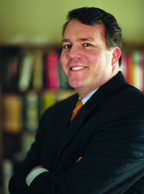 Alex Mooney, candidate for West Virginia’s 2nd Congressional District, became the youngest member of the Maryland State Senate in 1998. Mooney was an aide to Congressman Roscoe Bartlett and a legislative analyst for the House Republican Conference Committee. As a senator, he fought for conservative fiscal and social values, including lower taxes, less government spending, protecting Second Amendment rights, pro-life legislation, job creation and senior care.
Alex Mooney, candidate for West Virginia’s 2nd Congressional District, became the youngest member of the Maryland State Senate in 1998. Mooney was an aide to Congressman Roscoe Bartlett and a legislative analyst for the House Republican Conference Committee. As a senator, he fought for conservative fiscal and social values, including lower taxes, less government spending, protecting Second Amendment rights, pro-life legislation, job creation and senior care.
Ask the Candidate
Tell us about your background in owning or running a business and how that experience will help you in the role of congressman.
I am an independent business owner. My company is AXM Consulting LLC. I’m my only employee, and I’ve been doing that for about three years now. It’s a small business, and I’ve had to hustle and make my own way and deal with business regulations like getting registered in West Virginia. Owning a business and having to deal with the regulations is one aspect of the experience. Having my personal experience is another—just starting a business and seeing how they’re pretty aggressive about the regulations, taxation policies, unemployment taxes and things like that. Moreover, it’s my background fighting against big government in general for 12 years. I’ve been hearing the concerns of business owners for a long time, and I’ve been fighting back against things like trial lawyer abuse, which I know, particularly in West Virginia, has been making it hard to own and operate a business. I simply look at the business climate here and the number of lawsuits, and it’s obvious it’s harming businesses in the state.
What do you see as West Virginia’s biggest challenges?
The biggest challenge everyone hears about is the regulations from the EPA. Under Obama and his expansive abuse of powers, it’s been harder to run a farm business, agricultural business, a coal company or any business. Another example is the passage of Obamacare, which has made the cost of owning and operating a business in West Virginia much more expensive. Obamacare is such a great example because it’s big government, and it’s taking away our freedoms by mandating insurance coverage for people and what kind of coverage they have. It is costing jobs. Obamacare really encapsulates many of the challenges facing West Virginia companies.
What do you see as the nation’s biggest challenges?
I think it’s dealing with our loss of freedoms. The ability to work and keep the money you earn is under threat. I feel like hard-working, productive West Virginians and Americans are, right now, under attack, particularly from Obama and his policies. Taxes were increased a couple of years ago. There’s been no relief on the corporate tax rate, despite the increase in regulations and complying with things like Obamacare and government bureaucracies. So, it’s really a loss of freedoms.
What are West Virginia’s most important assets?
It’s hard to pick one. It’s a beautiful state, the cost of living is more reasonable than states that have or are near very large cities. It’s just far enough from Washington, D.C. that you can get land and a house at a reasonable rate. It’s beautiful, so there’s great opportunity for tourism. And really, the people. The people that live here have traditional values. One of the reasons I chose to live here is to live in a state that shares those values. Folks who live here believe in working hard and personal responsibility.
Which of your personal characteristics will help you as a congressman?
The personal characteristic I think I share with West Virginia voters is someone who will stand up and fight for their principles. I have no problem working with Democrats when we agree, even though I’m a conservative Republican. On the other hand, there’s a time to fight. With the war on coal right now being waged against West Virginians and the war on the farmers and gun owners; Obamacare, which is a war on businesses and job creators, and the trial lawyers’ rampant lawsuit abuses, which is a war on job creators, there’s a time to fight.
What will be your No. 1 priority as a congressman?
First thing I want to do is repeal Obamacare completely and restore our freedoms.
Nick Casey (D)
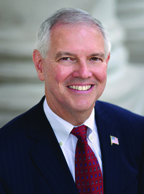 Nick Casey, a CPA and a lawyer, is running for office in West Virginia’s 2nd Congressional District. His goal as congressman is to change the partisan gridlock tearing the country apart. He will vote to responsibly cut spending, though not on the backs of Social Security and Medicare recipients. He will also fight for West Virginia’s industries and against increasing regulations, and he wants to help create value-added jobs for West Virginians.
Nick Casey, a CPA and a lawyer, is running for office in West Virginia’s 2nd Congressional District. His goal as congressman is to change the partisan gridlock tearing the country apart. He will vote to responsibly cut spending, though not on the backs of Social Security and Medicare recipients. He will also fight for West Virginia’s industries and against increasing regulations, and he wants to help create value-added jobs for West Virginians.
Ask the Candidate
Tell us about your background in owning or running a business and how that experience will help you in the role of congressman.
I have been a CPA and lawyer for the last 38 years, and my first job with a law firm is still my current job. Over the years, I’ve moved up through the ranks, and I am now the managing member of the organization. We’ve grown from one office in Charleston to additional offices in Morgantown and Columbus, OhioH, and we’re now up to about 60 employees. I’ve had the opportunity to do everything you do in business, and I think the most important thing is to make payroll. In that role, I’ve done everything from human resources—hiring, firing, managing people and opening two new offices—to dealing with cash flow, like being sure the lines of credit are in place when needed but also being sure the bills go out on time and managing our receivables. My position as the managing member of a firm that does in excess of multi-millions of dollars in business a year has been pretty good training for me in how to run a business and how to successfully take care of our people and be good citizens.
What do you see as West Virginia’s biggest challenges?
Right now, the regulatory situation is very difficult. Most of my clients, and certainly myself when I act as a business person, want predictability and stability, and what we’ve got right now is a lot of instability. Regulations are being enforced in manners that many people think are inconsistent with what the regulation or underlying law was supposed to do. The ability to have a stable regulatory and legal environment is one of the problems for business folks in West Virginia right now. Once that stabilizes or we get some people in Congress who can make it stable, our good business people and their employees will deal with those regulations.
What do you see as the nation’s biggest challenges?
The regulatory issues affect everybody. I think any environment in which regulations are undependable creates a tremendous challenge across the country. It makes business people sit on cash because they’re not comfortable that the regulations are settled or will be settled in a way that’s reasonable. They don’t make investments, which would help the country and the economy. They distrust the decision making. That low level of trust is a shame and demonstrates to me that they don’t believe government is functioning in a way that’s in their best interest. We’ve got to do something about that trust.
What are West Virginia’s most important assets?
West Virginia has all of these positive things going for it. Some of them are simple, God-given wonders. We have these natural resources, whether it is coal, gas, timber or water resources, that give us the ability to produce money. We have the natural beauty, terrain and wonderful sites that make this a tourism magnet. The Boy Scouts of America decided the spot where they want to be on the eastern side of the United States is in West Virginia. On top of all that, we’ve got great geographic location. We are within 500 miles of the vast majority of the population of America. So not only can tourists and others come visit us, we can make products and produce things—energy and otherwise—and ship them out with a very convenient vehicular transportation system right around us. Those are two great things going for us, and the other thing, which I think no one can deny, is the people and the work force in West Virginia. We’ve got a great location, great assets and great people, and I think we’ve got great opportunity.
Which of your personal characteristics will help you as a congressman?
My experience in dealing with people who have issues and conflicts as an attorney gives me the best leg up. We need people in Congress who can make things happen instead of people who think the best way to address an issue is to blow up the deal. That’s not the way people run their lives, and that’s not the way they run their businesses. I think it’s that ability to come in and have a fair discussion and be open-minded.
What will be your No. 1 priority as a congressman?
Fiscal responsibility. You know, West Virginia has a balanced budget. My law office and my church have a balanced budget, and most families have a balanced budget or they get in trouble financially. I don’t understand why, for five years, we haven’t had a budget in the United States of America. It’s embarrassing to a guy who’s an accountant to think this country with its size and complexity can’t have a budget, let alone a balanced budget. I want a rational budgeting process that budgets on a regular basis. I want a budget that gets balanced, and I think that if we can bring that kind of budgetary discipline to the country, a lot of other things will fall in place.
Congressional Race – 3rd District
Evan Jenkins (R)
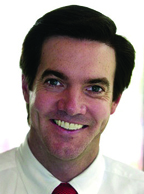 Senator Evan Jenkins was first elected to the West Virginia Legislature as a representative in the House of Delegates in 1994, where he served three terms. In 2002, he was elected to the West Virginia Senate and is currently serving his third term. Jenkins has worked tirelessly to stem rising health care costs, cut taxes for the middle class, protect children and seniors and address the prescription drug abuse epidemic.
Senator Evan Jenkins was first elected to the West Virginia Legislature as a representative in the House of Delegates in 1994, where he served three terms. In 2002, he was elected to the West Virginia Senate and is currently serving his third term. Jenkins has worked tirelessly to stem rising health care costs, cut taxes for the middle class, protect children and seniors and address the prescription drug abuse epidemic.
Ask the Candidate
Tell us about your background in owning or running a business and how that experience will help you in the role of congressman.
I practiced law from the late 1980s to the early 1990s doing labor employment law in Huntington. I worked day to day with employers and employees of the many companies throughout western West Virginia and gained insight and experience into the issues that impact the ability to grow and attract jobs to the state. From 1992-1999, I served as general counsel for the West Virginia State Chamber of Commerce. Over those seven years, my focus was on economic development and job creation in working with employers throughout West Virginia to address the policy issues that are holding our state back. I also had extensive exposure to employers outside of West Virginia that were considering locating in our state. Since 1999, I have run a small business myself. I’m the head of the state medical association. I have nine employees and have to make payroll every two weeks. The last 30+ years of my career have dealt with every aspect of what it takes to attract a job, retain a job and grow a job in West Virginia, and that has given me a very broad exposure to the issues that are important to economic development in our state, like our workers and our employers.
What do you see as West Virginia’s biggest challenges?
There is no question West Virginia is under attack from the policies and priorities being driven out of Washington from the current administration and its supporters. To see the agenda driven in Washington that is so devastating to our jobs, there is no denying we are under attack, and we have taken a tremendous hit in so many respects. The anti-coal agenda has caused us to lose thousands of coal jobs; our coal-fired power plants are being forced to shut down, causing higher utility costs to be paid by every West Virginian; the government takeover of our health care system is jeopardizing the doctor-patient relationship and the economic impact is being felt in every community throughout our state with jobs being lost.
What do you see as the nation’s biggest challenges?
There is no question that the war on coal is having a particularly pronounced impact on the people of West Virginia. The war on coal is going to impact the entire country. In addition to the impact this administration is having on us as a state and as a people, our country is facing enormous challenges because of the bad decisions and lack of leadership out of Washington. We have lost the leadership role we once maintained, and we must reassert ourselves as a leader in the world that others will look to and be willing to follow.
What are West Virginia’s most important assets?
It goes without saying that our people are our best asset. By our very nature, we all have a rugged individualism I would put up against anybody anywhere. Employers know they can get a full day’s work for a full day’s pay out of hard-working West Virginians. We are strong in our beliefs and our values. Our level of patriotism is second to none. We know right from wrong, and we’re willing to stand up and fight for what we believe in. It’s that toughness that, when we see what’s happening in Washington that is so devastating to who we are and what we do, we are willing to stand up and fight for what we believe in.
Which of your personal characteristics will help you as a congressman?
I am a problem solver. I put solutions far ahead of politics. Partisan gridlock in Washington is having a devastating impact on our country. We have a $17 trillion debt that is bankrupting our future. We have transportation projects that have been on the books for literally decades but not constructed. I understand the legislative process, and I understand how to work with fellow legislators. I have done that for 18 years. That’s the kind of experience and new leadership we need in Washington because Washington is broken.
What will be your No. 1 priority as a congressman?
I will proudly sponsor and support the passage of the Range Act, which is legislation that will reign in the EPA’s outrageous regulatory attacks on our coal industry, our agriculture industry and so many other aspects of who we are and what we do in West Virginia. The president and his supporters are using his regulatory authority to avoid congressional review, and this act will mandate that these regulations must first be reviewed by Congress. I will be a representative who is not only proud to vote for it but who is willing to sponsor it.
Nick Rahall (D)
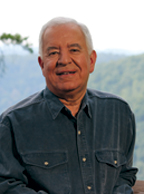 U.S. Representative Nick Rahall represents West Virginia’s 3rd Congressional District. He is currently serving his 19th term and is recognized as the youngest-elected, longest-serving member in the history of the House. Rahall is the ranking member on the House Transportation and Infrastructure Committee, where he works to build and repair the nation’s highways and bridges, improve airports and provide critical water and sewer systems and flood control projects.
U.S. Representative Nick Rahall represents West Virginia’s 3rd Congressional District. He is currently serving his 19th term and is recognized as the youngest-elected, longest-serving member in the history of the House. Rahall is the ranking member on the House Transportation and Infrastructure Committee, where he works to build and repair the nation’s highways and bridges, improve airports and provide critical water and sewer systems and flood control projects.
Ask the Candidate
Tell us about your background in owning or running a business and how that experience will help you in the role of congressman.
My background in business goes back to my high school days working as a ladies’ shoe salesman in my father’s dress shop in downtown Beckley. I then worked in my family’s communications business, serving on the board of directors of Rahall Communications. At the same time, I owned Mountaineer Tour and Travel Agency and provided travel services for many of our coal companies and businesses in the Raleigh County area. When the family sold Rahall Communications, I teamed up with a longtime partner of my father’s, and we opened a radio station in Mount Hope in 1980. So my background has been extensive in small business. I’ve had to meet payrolls and have used that experience to serve in my congressional capacity. I know how the climate has changed, how deregulation has affected our businesses and how more regulations have affected small business. I have done my best to ensure it’s not excessive regulations upon our small businesses and there is a proper balance between protecting our people’s safety and health and ensuring they have proper benefits such as health and pensions. Workers’ safety and health are paramount, and I’ve used that experience and knowledge to ensure our coal miners, for example, receive what they have worked so long and hard for and ensure they are protected while they’re working.
What do you see as West Virginia’s biggest challenges?
Jobs, jobs and jobs. I believe we need to continue, as I’ve been working to do throughout my career, to diversify our economy so we can ensure that in the downswings in the coal business, there are other jobs to which our workers can turn. Another challenge in our state is infrastructure, whether it’s highways, byways, water and sewer systems or technology like expanding broadband to rural parts of our state. I continue to use my experience in Congress to move the ball forward in each of those areas. We’ve made progress, but we have much more to do.
What do you see as the nation’s biggest challenges?
Infrastructure and the need to ensure the investments necessary for our infrastructure. Infrastructure creates good-paying jobs that not only put Americans to work but have the trickle-down effect of providing jobs in so many other areas as well. The old saying “If you build it, they will come”—I believe it strongly. We build our highways, and businesses will follow. We are desperately behind as a percentage of our GDP, what we spend on our infrastructure, versus our competition in the world arena. That’s the biggest challenge I see in our country. When you put people to work, you increase revenues and reduce our deficit. It’s a win-win.
What are West Virginia’s most important assets?
Our people are hard-working, our work ethic is strong and our work environment is conducive to productivity. Also, our patriotism. The number of young men and women who have answered the call of duty ranks up there in the very top of our 50 states on a per capita basis, and I salute every one of our veterans and those in uniform. Our natural beauty lends to recreational pursuits of our own people and is a magnet for attracting people from all over the world. I have used my experience in Congress to establish the largest system of federally-protected rivers east of the Mississippi. I did that working across party aisles, under a Republican administration. I started with the New River Gorge, and in the 1980s, I used that as the backbone and added Gauley River to create what I truly believe was the magnet that drew the Boy Scouts of America to make Southern West Virginia their permanent home.
Which of your personal characteristics will help you as a congressman?
West Virginia values. Those are my personal values: hard work, integrity, trust and sticking to my principles, which are based upon West Virginia values.
What will be your No. 1 priority as a congressman?
More jobs for our people. Again, that relates to improving our markets and environment for our coal industry and our coal miners. It includes diversifying our economy and building our infrastructure. Those are the three most important areas we can focus on to provide jobs, which is our No. 1 priority for our people. It goes back to what I’ve said about the three t’s—transportation, tourism and technology. I said that once, and Senator Byrd was on stage with me and immediately added a fourth t—teamwork. How true that is. Working cooperatively with our people. Bringing everybody together. Working across party aisles regardless of who controls the House of Representatives or who controls the White House. I’ve used my experience to produce the people I’m honored to represent.



